Find Help
More Items From Ergsy search
-
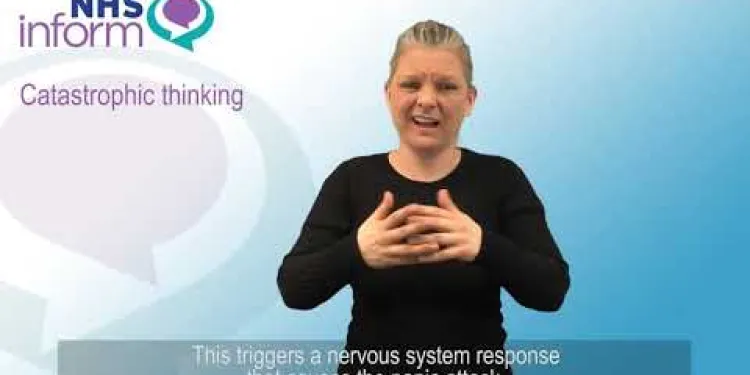
BSL - Causes of panic disorder
Relevance: 100%
-
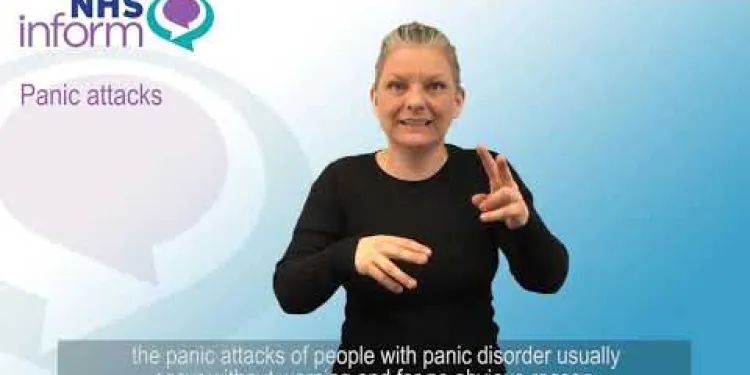
BSL - Diagnosis of panic disorder
Relevance: 100%
-
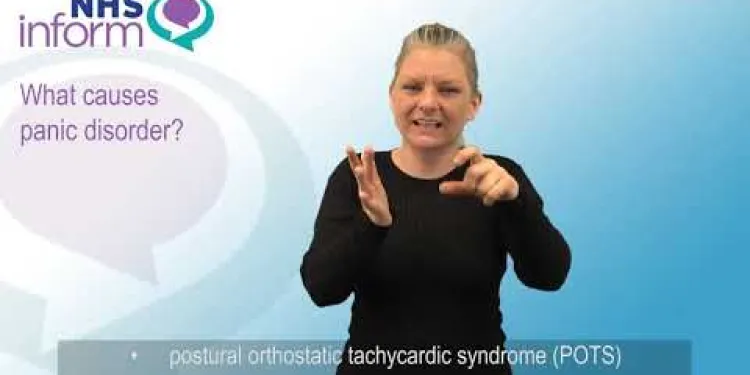
BSL - Introduction to panic disorder
Relevance: 99%
-
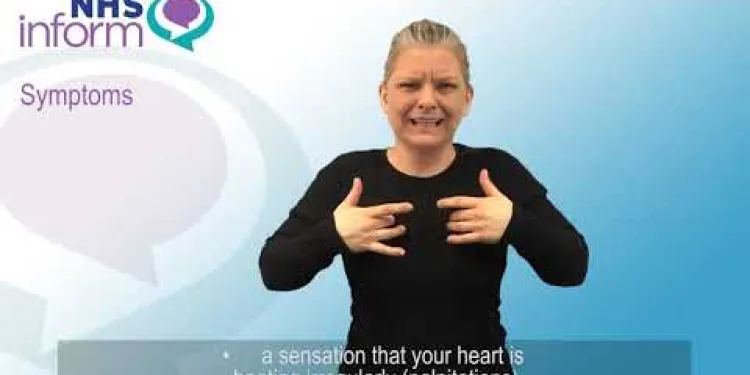
BSL - Symptoms of panic disorder
Relevance: 99%
-
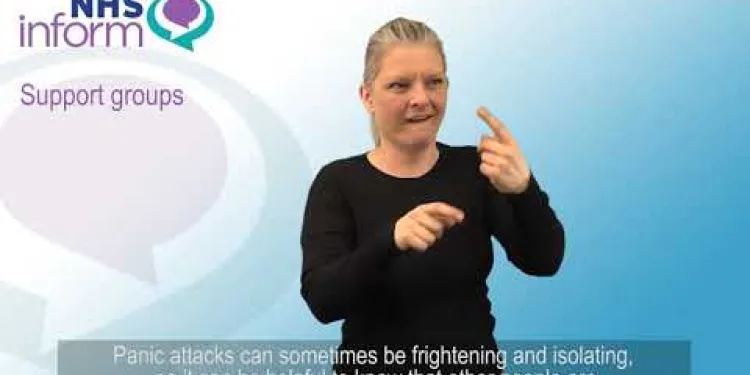
BSL - Treatment of panic disorder
Relevance: 99%
-
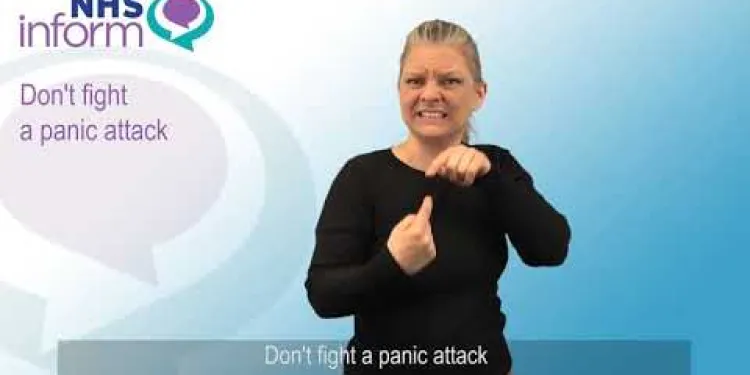
BSL - Panic disorder: things you can do to help yourself
Relevance: 85%
-
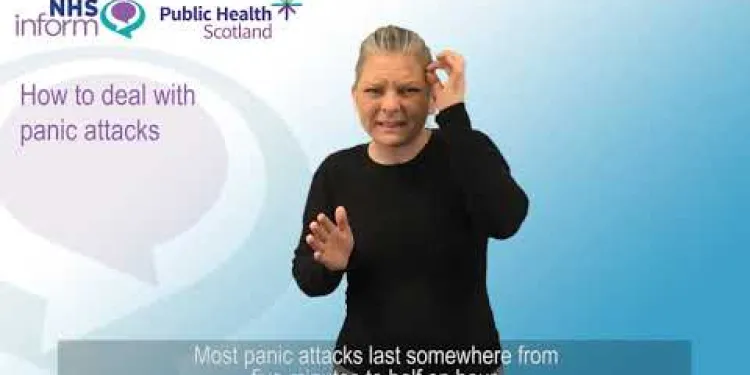
BSL - How to deal with panic attacks
Relevance: 61%
-
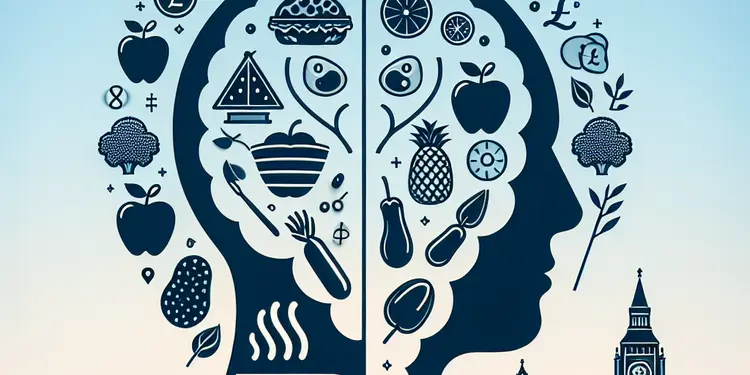
How do eating disorders affect mental health?
Relevance: 42%
-
What is an Eating Disorder?
Relevance: 39%
-
What is an eating disorder?
Relevance: 39%
-
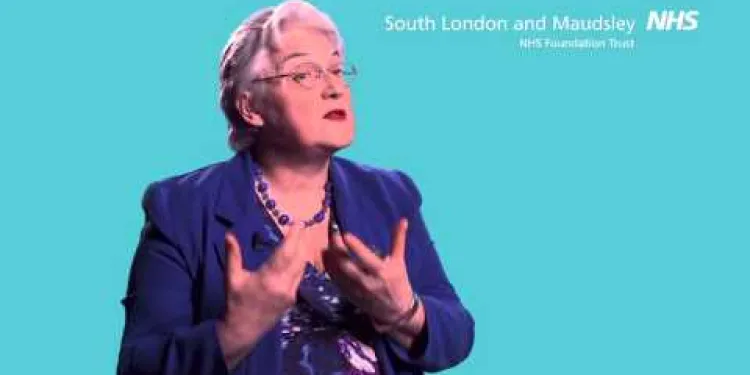
Eating disorders: treatment
Relevance: 39%
-
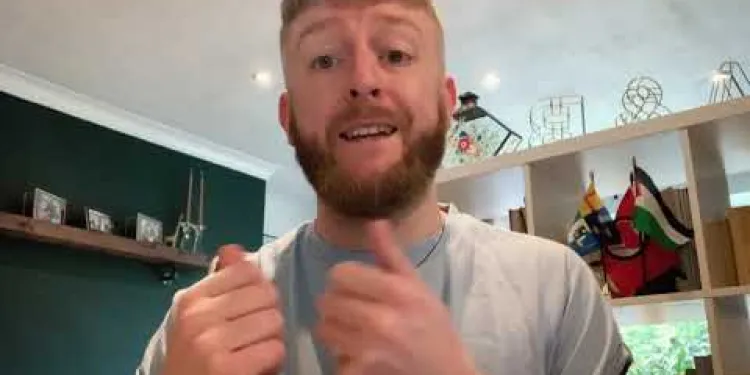
Living with Bipolar Disorder
Relevance: 39%
-
Are there preventative measures for eating disorders?
Relevance: 38%
-
How are eating disorders diagnosed?
Relevance: 38%
-

The treatment approach for an eating disorder
Relevance: 37%
-
Can eating disorders be treated?
Relevance: 37%
-
Who is at risk for developing an eating disorder?
Relevance: 36%
-
Are eating disorders only about food?
Relevance: 36%
-
What are the main types of eating disorders?
Relevance: 36%
-

Bipolar disorder: Rod's story | NHS
Relevance: 35%
-
What are common symptoms of eating disorders?
Relevance: 35%
-
Is it possible to recover from an eating disorder?
Relevance: 35%
-
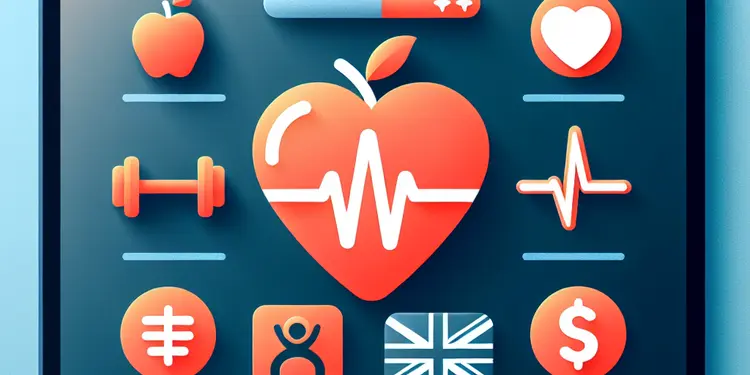
What is the impact of eating disorders on physical health?
Relevance: 34%
-

Jess Rann - Specialist Eating Disorders Dietitian
Relevance: 34%
-
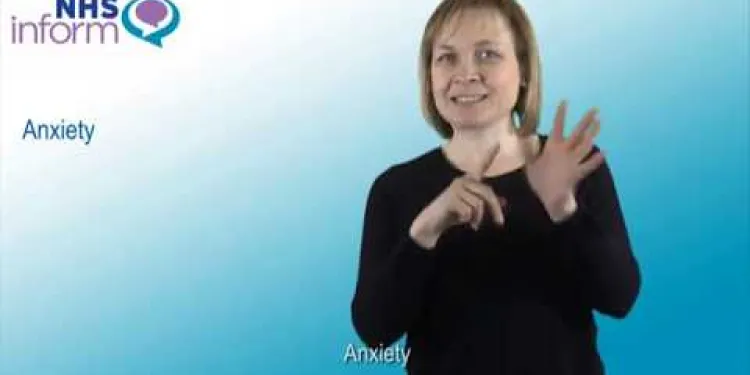
Generalised anxiety disorder (GAD)
Relevance: 34%
-
What is the role of therapy in treating eating disorders?
Relevance: 34%
-
What are the long-term effects of untreated eating disorders?
Relevance: 34%
-
What are some common myths about eating disorders?
Relevance: 34%
-

Short Films About Mental Health - Personality Disorders
Relevance: 33%
-
What are the early warning signs of an eating disorder?
Relevance: 33%
-

How common is Seasonal Affective Disorder?
Relevance: 33%
-
How can someone seek help for an eating disorder?
Relevance: 33%
-
What is body dysmorphia and how is it related to eating disorders?
Relevance: 33%
-
Can eating disorders occur with other mental health conditions?
Relevance: 32%
-

What is seasonal affective disorder - or SAD?
Relevance: 32%
-

What is Seasonal Affective Disorder (SAD)?
Relevance: 32%
-
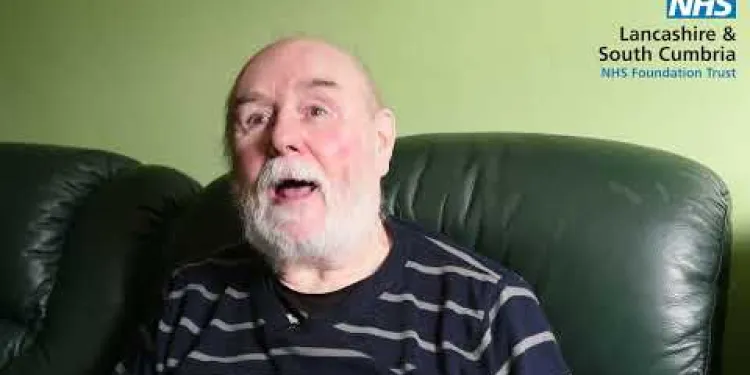
Steve Green tells his story on living with a hoarding disorder
Relevance: 32%
-
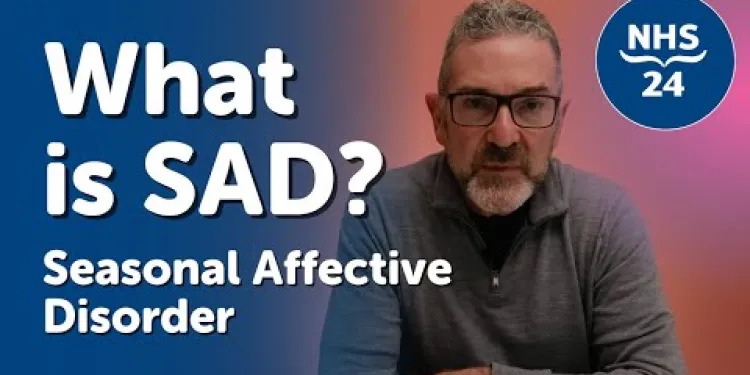
What is Seasonal Affective Disorder? (SAD)
Relevance: 31%
-
How can someone help a loved one with an eating disorder?
Relevance: 31%
-
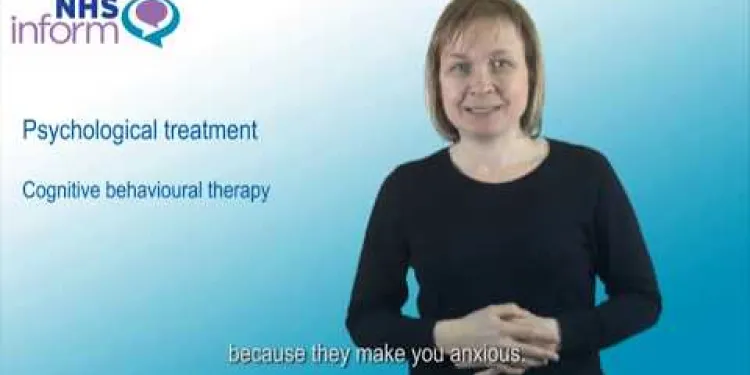
Treating generalised anxiety disorder (GAD)
Relevance: 31%
Introduction to Panic Disorder
Understanding Panic Disorder
Panic disorder is a type of anxiety disorder characterized by recurrent and unexpected panic attacks. A panic attack involves a sudden onset of intense fear or discomfort, peaking within minutes and often accompanied by physical symptoms such as chest pain, heart palpitations, dizziness, or shortness of breath. For individuals living in the United Kingdom, understanding panic disorder is crucial as it can significantly impact one’s daily life and overall mental wellbeing.Symptoms of Panic Disorder
The symptoms of panic disorder are both psychological and physical. Psychological symptoms include a persistent fear of future attacks, a sense of derealisation, or feeling detached from oneself. Physically, individuals might experience sweating, trembling, nausea, or chills. These symptoms can be severe enough to interfere with routine activities and may lead to avoidance behaviors, where a person shuns certain places or situations for fear of triggering an attack.Causes and Risk Factors
The exact cause of panic disorder is not fully understood, but it is believed to be a combination of genetic, biological, environmental, and psychological factors. Risk factors include a family history of panic disorders or other mental health conditions, significant life stressors, certain medical conditions, or the use of substances such as alcohol and drugs. Additionally, ongoing stress or a history of childhood trauma can increase the likelihood of developing panic disorder.Diagnosis and Treatment
Diagnosis of panic disorder typically involves a thorough medical evaluation to rule out other conditions and a psychological assessment to understand the individual's symptoms and their frequency. Treatment often includes a combination of medication, such as selective serotonin reuptake inhibitors (SSRIs) or benzodiazepines, and psychotherapy, particularly cognitive-behavioral therapy (CBT). Lifestyle changes, such as regular exercise, a healthy diet, and stress management techniques, can also aid in managing symptoms.Getting Support in the UK
Support for panic disorder in the UK is accessible through various national health services. Initiatives like NHS Improving Access to Psychological Therapies (IAPT) provide mental health support, including therapy sessions. Charities such as Mind or Anxiety UK offer resources, helplines, and support groups. It is essential for individuals experiencing symptoms to seek help early to manage the disorder effectively and improve their quality of life.Conclusion
Panic disorder is a manageable condition with the right support and treatment. Understanding the symptoms, causes, and available resources can help individuals in the UK navigate their experiences and seek appropriate help. If you or someone you know is struggling with panic disorder, reaching out to healthcare providers or support organisations can be the first step towards recovery and regaining control over one’s life.Introduction to Panic Disorder
Understanding Panic Disorder
Panic disorder is a type of anxiety problem. It means having panic attacks again and again without warning. A panic attack is when you suddenly feel very scared. It happens quickly and can make you feel things like chest pain, a fast heartbeat, feeling dizzy, or not being able to breathe. In the UK, knowing about panic disorder is important because it can make daily life difficult and affect mental health.Symptoms of Panic Disorder
Panic disorder symptoms can affect the mind and body. Mind symptoms include always being scared of another attack or feeling like things are not real. Body symptoms include sweating, shaking, feeling sick, or getting cold chills. These symptoms can be strong and stop you from doing everyday things. It might make people avoid certain places or situations because they are scared it will cause an attack.Causes and Risk Factors
We do not know exactly why panic disorder happens, but it seems to come from a mix of factors. These include genes, how your body works, your surroundings, and how you think. Things that could make it more likely include having a family member with panic disorder, big stress in life, some health problems, or using substances like alcohol or drugs. Ongoing stress or past trauma, especially in childhood, can also make panic disorder more likely.Diagnosis and Treatment
To find out if someone has panic disorder, doctors will need to check if other health issues are causing the symptoms. They will also ask questions about how often and how bad the symptoms are. Treatment might involve medicine and talking therapy. Medicines like SSRIs or benzodiazepines help, and therapies like CBT are useful. Changing habits like exercising, eating well, and managing stress can also help with symptoms.Getting Support in the UK
In the UK, there is support available for panic disorder through national health services. Programs like NHS Improving Access to Psychological Therapies (IAPT) offer mental health support, including therapy. Charities such as Mind or Anxiety UK provide help, phone support, and groups for people with similar problems. It is important to ask for help early to handle panic disorder well and feel better.Conclusion
Panic disorder can be controlled with the right help and treatment. Knowing about the symptoms, why it happens, and where to get help can assist people in the UK. If you or someone you know has panic disorder, talking to a doctor or contacting support organizations can be the first step. This can help in feeling better and taking charge of life again.Frequently Asked Questions
What is panic disorder?
Panic disorder is a type of anxiety disorder characterised by sudden and repeated episodes of intense fear, often triggering severe physical reactions such as palpitations, sweating, and shortness of breath.
What are the symptoms of a panic attack?
Symptoms of a panic attack can include chest pain, heart palpitations, dizziness, trembling, shortness of breath, and a fear of losing control or dying.
How is panic disorder diagnosed?
Panic disorder is diagnosed by a healthcare professional based on your medical history, symptoms, and sometimes a physical examination to rule out other conditions.
What causes panic disorder?
The exact cause of panic disorder is unknown, but it may involve a combination of genetic, psychological, and environmental factors.
Are panic attacks dangerous?
While panic attacks can be very frightening and cause significant distress, they are not life-threatening.
How common is panic disorder?
Panic disorder affects approximately 1 in 75 people worldwide and is more common in women than men.
Can children have panic disorder?
Yes, children and adolescents can experience panic disorder, though it often manifests differently than in adults.
What treatments are available for panic disorder?
Treatment options include psychotherapy, particularly cognitive behavioural therapy (CBT), medication, and lifestyle changes such as stress management and exercise.
Can lifestyle changes help manage panic disorder?
Yes, regular exercise, proper sleep, a healthy diet, avoiding caffeine and alcohol, and practicing relaxation techniques can help manage symptoms.
What medications are commonly prescribed for panic disorder?
Antidepressants (such as SSRIs) and anti-anxiety medications (such as benzodiazepines) are commonly prescribed for panic disorder.
Is it possible to recover from panic disorder?
Many people with panic disorder can lead fulfilling lives with appropriate treatment, and some may experience significant improvement or full recovery over time.
Can panic disorder coexist with other mental health conditions?
Yes, panic disorder often coexists with other mental health conditions such as depression, other anxiety disorders, and substance abuse.
What is the difference between a panic attack and an anxiety attack?
Panic attacks are sudden and intense with physical symptoms like chest pain, while anxiety attacks typically build gradually and are associated with worry or stress.
How can I support a friend or family member with panic disorder?
Offer support by listening without judgment, encouraging them to seek professional help, and helping them to avoid stressors when possible.
Where can I find help for panic disorder in the UK?
In the UK, you can seek help from your GP, mental health services such as the NHS, and organisations like Mind and Anxiety UK.
What is panic disorder?
Panic disorder is when you feel very scared suddenly. This happens a lot, and you can't stop it. It might feel like your heart is beating very fast or you can't breathe. It can be very worrying.
Here are some tips to feel better:
- Take deep, slow breaths.
- Talk to someone you trust about how you feel.
- See a doctor for help.
- Try to relax your body and mind.
Panic disorder is a kind of anxiety problem. It makes people feel very scared all of a sudden. This can happen over and over again. When this happens, the body can have strong reactions. Some people might feel their heart beating fast, start sweating, or find it hard to breathe.
For help, people can try talking to a doctor or a therapist. Breathing exercises and calming music might also help when feeling scared.
What happens during a panic attack?
A panic attack makes you feel very scared suddenly.
Here are some things you might feel:
- Your heart beats fast.
- You feel shaky or dizzy.
- You find it hard to breathe.
- Your body feels warm or sweaty.
- You feel sick or have a stomachache.
If you feel this way, try to:
- Take slow, deep breaths.
- Sit down and tell yourself you will be okay.
- Ask a friend or adult for help.
When you have a panic attack, you might feel:
- Pain in your chest
- Your heart beating really fast
- Dizzy or like you might fall over
- Your body shaking
- Like you can't breathe
- Scared that something bad will happen
Talking to someone you trust can help. Breathing slowly and counting to ten might also make you feel better.
How do doctors know if someone has panic disorder?
A doctor can find out if you have panic disorder. They will ask about your health, how you feel, and may check your body to make sure nothing else is wrong.
What makes panic disorder happen?
Panic disorder can be caused by different things. Here are some reasons why it might happen:
- Family History: If someone in your family has panic disorder, you might get it too.
- Stressful Events: Big changes or stress, like moving or losing a loved one, can cause panic.
- Brain Changes: Sometimes, the way your brain works can make you feel scared or worried.
- Medical Problems: Some health issues can make you feel panicky.
Tools and tips to help:
- Talking to a counselor can help you feel better.
- Try deep breathing or relaxing when you feel scared.
- Exercise can make you feel calm and strong.
- It's okay to ask for help from family or friends.
We don't know exactly what causes panic disorder. It might happen because of genes, how we think and feel, or things around us.
Are panic attacks dangerous?
Panic attacks can feel very scary, but they are not dangerous. You might feel like you can't breathe or like something bad will happen. But panic attacks do not cause harm.
Here are some tools that can help when you have a panic attack:
- Take slow, deep breaths.
- Think about something that makes you happy or calm.
- Try to relax your muscles one by one.
If you have lots of panic attacks, talk to a doctor or a trusted adult. They can help you find ways to feel better.
Panic attacks can be very scary and make you feel really upset, but they cannot hurt you.
How many people have panic disorder?
Panic disorder is a condition that affects people. It happens to about 1 out of every 75 people all over the world. More women have it than men.
Can kids have panic disorder?
Yes, kids can have panic disorder. This means they feel very scared suddenly, even when there's no real danger. It's like a strong and scary feeling that can happen anytime.
If a child feels like this a lot, it’s good to ask a doctor for help. Talking to a counselor or therapist can also be a good idea. Deep breathing, drawing, or listening to music can help them feel better.
Yes, kids and teenagers can have panic disorder. It can look a bit different from how adults show it.
What ways can help with panic disorder?
Panic disorder is when you feel very scared suddenly. Here are some things that might help:
- Talking to Someone: You can talk to a doctor or a therapist. They listen and help you feel better.
- Medicine: Some medicines can help you feel less scared. A doctor can tell you if medicine is right for you.
- Relaxing Exercises: Breathing slowly and deeply can help calm you down.
- Support Groups: Meeting other people who feel the same can be helpful. You can share and learn from each other.
Remember, it’s okay to ask for help. You are not alone, and there are things that can make you feel better.
Treatment choices include talking to a therapist, like in sessions called CBT, taking medicine, and making changes in daily life, like handling stress and doing exercise.
Can changing how you live help with panic disorder?
Panic disorder is when you feel very scared or anxious a lot. Making some changes in your life can help make it better.
Here are some tips that might help:
- Exercise: Moving your body can make you feel calmer.
- Healthy Eating: Eating good food can help your body and mind.
- Sleep: Getting enough sleep helps you feel better every day.
- Breathing: Taking deep breaths can help you feel less scared.
If you often feel scared, you might also talk to a helper, like a therapist. They can give support and more ideas to feel better.
Yes, you can feel better by doing these things:
- Exercise often
- Get good sleep
- Eat healthy food
- Stay away from caffeine and alcohol
- Try to relax and stay calm
What medicines do doctors give for panic disorder?
People with panic disorder sometimes take medicine to help them feel better. These medicines can help calm down panic attacks.
Doctors might give:
- Antidepressants: These help with feelings of worry and sadness. They can also help stop panic attacks.
- Benzodiazepines: These help people feel calm quickly. They are used for a short time because they can become a habit.
If you have panic disorder, talk to your doctor. They can help find the right medicine for you.
It can help to:
- Write down how you feel each day.
- Tell someone you trust about your feelings.
- Take deep breaths when you feel worried.
Doctors often give medicine to help people who feel very scared or worried. Some of these medicines are called SSRIs and they help when someone feels sad. Other medicines, called benzodiazepines, help when someone feels scared or nervous. These medicines can help people who have panic attacks.
Can you get better from panic disorder?
If you have panic disorder, there are ways to feel better.
Here are some things that can help:
- Talk to a doctor or therapist.
- Learn to breathe slowly and calmly.
- Write down your feelings in a journal.
- Try to get plenty of sleep and eat healthy food.
- Exercise regularly to help your body feel good.
It might take time, but you can feel better.
Lots of people who feel very scared can get better with the right help. Some people might feel a lot better or even get completely better as time goes by.
Can someone have panic disorder and other mental health issues at the same time?
Panic disorder means you get really scared suddenly, like a panic attack. People with panic disorder can also have other mental health issues. This means having a panic disorder and something else too.
To help understand, you can:
- Talk to a doctor who knows about these things.
- Use apps or tools that help explain about panic disorder.
- Read simple books about mental health.
- Ask a friend or family member to help you.
Yes, panic disorder often happens with other mental health problems like feeling very sad (depression), being very worried (anxiety), and using too much alcohol or drugs.
What is the difference between a panic attack and an anxiety attack?
A panic attack and an anxiety attack can feel different.
A panic attack happens very quickly. It makes you feel very scared or worried. It can feel like your heart is beating really fast and you might find it hard to breathe.
An anxiety attack builds up slowly. It can make you feel worried and scared, but it usually lasts longer than a panic attack.
To help with these feelings, try taking deep breaths and talking to someone you trust. Drawing or listening to music can also help you feel better.
Remember, it’s okay to ask for help if you need it.
Panic attacks happen very fast and feel strong. You might feel things like chest pain. Anxiety attacks happen slowly. They come from feeling worried or stressed.
How can I help a friend or family member with panic disorder?
Help your friend by listening to them without saying if they are right or wrong. Tell them to talk to a doctor for more help. Try to help them stay away from things that make them upset.
Where can I get help for panic disorder in the UK?
Panic disorder means feeling very scared suddenly. If you need help, you can talk to your doctor. They can help you feel better.
You can also find support groups. These are people who understand how you feel and can help you feel less alone.
Using calming techniques like deep breathing can help when you feel scared. Practicing these every day can make you feel better.
It is okay to ask for help. You are not alone.
In the UK, you can get help from your doctor (GP). You can also talk to mental health services like the NHS. Groups like Mind and Anxiety UK can help too.
Useful Links
This website offers general information and is not a substitute for professional advice.
Always seek guidance from qualified professionals.
If you have any medical concerns or need urgent help, contact a healthcare professional or emergency services immediately.
Some of this content was generated with AI assistance. We’ve done our best to keep it accurate, helpful, and human-friendly.
- Ergsy carfully checks the information in the videos we provide here.
- Videos shown by Youtube after a video has completed, have NOT been reviewed by ERGSY.
- To view, click the arrow in centre of video.
- Most of the videos you find here will have subtitles and/or closed captions available.
- You may need to turn these on, and choose your preferred language.
- Go to the video you'd like to watch.
- If closed captions (CC) are available, settings will be visible on the bottom right of the video player.
- To turn on Captions, click settings .
- To turn off Captions, click settings again.
More Items From Ergsy search
-

BSL - Causes of panic disorder
Relevance: 100%
-

BSL - Diagnosis of panic disorder
Relevance: 100%
-

BSL - Introduction to panic disorder
Relevance: 99%
-

BSL - Symptoms of panic disorder
Relevance: 99%
-

BSL - Treatment of panic disorder
Relevance: 99%
-

BSL - Panic disorder: things you can do to help yourself
Relevance: 85%
-

BSL - How to deal with panic attacks
Relevance: 61%
-

How do eating disorders affect mental health?
Relevance: 42%
-
What is an Eating Disorder?
Relevance: 39%
-
What is an eating disorder?
Relevance: 39%
-

Eating disorders: treatment
Relevance: 39%
-

Living with Bipolar Disorder
Relevance: 39%
-
Are there preventative measures for eating disorders?
Relevance: 38%
-
How are eating disorders diagnosed?
Relevance: 38%
-

The treatment approach for an eating disorder
Relevance: 37%
-
Can eating disorders be treated?
Relevance: 37%
-
Who is at risk for developing an eating disorder?
Relevance: 36%
-
Are eating disorders only about food?
Relevance: 36%
-
What are the main types of eating disorders?
Relevance: 36%
-

Bipolar disorder: Rod's story | NHS
Relevance: 35%
-
What are common symptoms of eating disorders?
Relevance: 35%
-
Is it possible to recover from an eating disorder?
Relevance: 35%
-

What is the impact of eating disorders on physical health?
Relevance: 34%
-

Jess Rann - Specialist Eating Disorders Dietitian
Relevance: 34%
-

Generalised anxiety disorder (GAD)
Relevance: 34%
-
What is the role of therapy in treating eating disorders?
Relevance: 34%
-
What are the long-term effects of untreated eating disorders?
Relevance: 34%
-
What are some common myths about eating disorders?
Relevance: 34%
-

Short Films About Mental Health - Personality Disorders
Relevance: 33%
-
What are the early warning signs of an eating disorder?
Relevance: 33%
-

How common is Seasonal Affective Disorder?
Relevance: 33%
-
How can someone seek help for an eating disorder?
Relevance: 33%
-
What is body dysmorphia and how is it related to eating disorders?
Relevance: 33%
-
Can eating disorders occur with other mental health conditions?
Relevance: 32%
-

What is seasonal affective disorder - or SAD?
Relevance: 32%
-

What is Seasonal Affective Disorder (SAD)?
Relevance: 32%
-

Steve Green tells his story on living with a hoarding disorder
Relevance: 32%
-

What is Seasonal Affective Disorder? (SAD)
Relevance: 31%
-
How can someone help a loved one with an eating disorder?
Relevance: 31%
-

Treating generalised anxiety disorder (GAD)
Relevance: 31%


